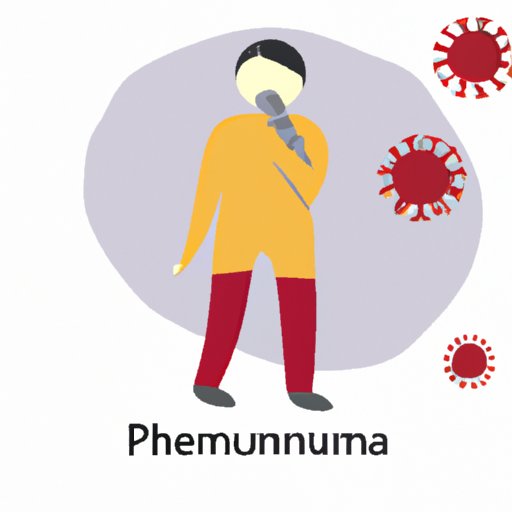
Can You Die from Walking Pneumonia?
Walking pneumonia is a less severe form of pneumonia that can cause severe respiratory symptoms. Anyone can be infected with this disease, but certain groups of people are more likely to be at risk of complications. It’s important to understand the risks associated with walking pneumonia to seek early medical attention and prevent fatal consequences.
Understanding Walking Pneumonia- Symptoms, Causes, and Treatment
Walking pneumonia is a bacterial respiratory infection that settles in the lungs. It’s called “walking” pneumonia because some of those who are infected with it can still function normally and go about their activities despite the illness. Unlike severe pneumonia, which requires hospitalization, walking pneumonia can be managed with proper outpatient treatment.
The symptoms of walking pneumonia, which are also common in other respiratory illnesses, include cough, congestion, fever, and shortness of breath. These symptoms may last for several weeks, and if left untreated, it can become severe and lead to hospitalization. The most common cause of walking pneumonia is the “Mycoplasma pneumoniae” bacteria. It is transmitted through close contact with an infected person, coughing, or handling contaminated items, such as tissues and utensils.
Doctors often prescribe antibiotics like Azithromycin, Clarithromycin, or Doxycycline to treat walking pneumonia. Patients are usually advised to drink lots of fluids and get plenty of rest to aid recovery.
The Dangers of Walking Pneumonia: Can it lead to Death?
While walking pneumonia can indeed cause severe respiratory symptoms, it is typically not fatal. With early diagnosis and proper treatment, patients can recover from the illness without any long-term consequences. However, there have been rare cases where the illness has resulted in the death of the patient. Groups of people at higher risk of severe symptoms include the elderly, children, and individuals with preexisting respiratory problems or weakened immune systems.
The most severe complications that can arise from walking pneumonia are Acute Respiratory Distress Syndrome (ARDS), kidney failure, and heart failure. These conditions occur when the bacteria that cause walking pneumonia spreads to other parts of the body, causing damage to vital organs.
Walking Pneumonia: Know When to Seek Medical Attention
It’s essential to seek medical attention if you experience any symptoms of walking pneumonia. If left untreated, the disease can lead to severe complications such as pleural effusion or pneumonia encephalitis in rare cases.
Early diagnosis is critical in any form of pneumonia. When caught early, walking pneumonia can be treated with a course of antibiotics and other medications. If you have any symptoms of walking pneumonia, such as persistent coughing, chest pain, or difficulty breathing, seek medical attention immediately.
Seeking Help for Walking Pneumonia: A Guide for Patients and Caregivers
When seeking medical attention for walking pneumonia, it’s essential to be honest with healthcare professionals about your symptoms and medical history. Patients may need to undergo a series of tests, such as chest x-rays, blood tests, and sputum cultures, to accurately diagnose the illness.
Once diagnosed, patients typically need a week or two of prescription antibiotics and plenty of rest to recover. Caregivers should ensure that patients complete the full course of antibiotics and get enough fluids to prevent dehydration. It’s also essential to avoid smoking and to get plenty of rest to help the body fight the infection.
Debunking the Myths on Walking Pneumonia Fatalities
There are several common myths surrounding the fatality of walking pneumonia. One such myth is that the disease is inherently fatal – this is untrue. With early diagnosis and proper treatment, patients can easily recover from walking pneumonia without severe complications.
Another myth is that antibiotics are not necessary for the treatment of walking pneumonia. This is also untrue – antibiotics are necessary to treat the bacterial infection and prevent severe complications.
How to Prevent Walking Pneumonia and its Potentially Fatal Consequences
One effective way to prevent walking pneumonia is to practice good hygiene habits. Always wash your hands before eating, after blowing your nose, and after using the restroom. Avoid close contact with anyone who is infected with the illness, and cover your mouth and nose while coughing or sneezing. It’s also crucial to maintain a healthy lifestyle by staying hydrated, avoiding smoking, and getting plenty of rest.
Conclusion
Walking pneumonia is a prevalent respiratory illness that is typically not fatal. However, the disease can be severe if left untreated, leading to complications such as heart and kidney failure. Seeking early medical attention is essential for early diagnosis and successful treatment. To prevent walking pneumonia, practice good hygiene habits and maintain a healthy lifestyle.





